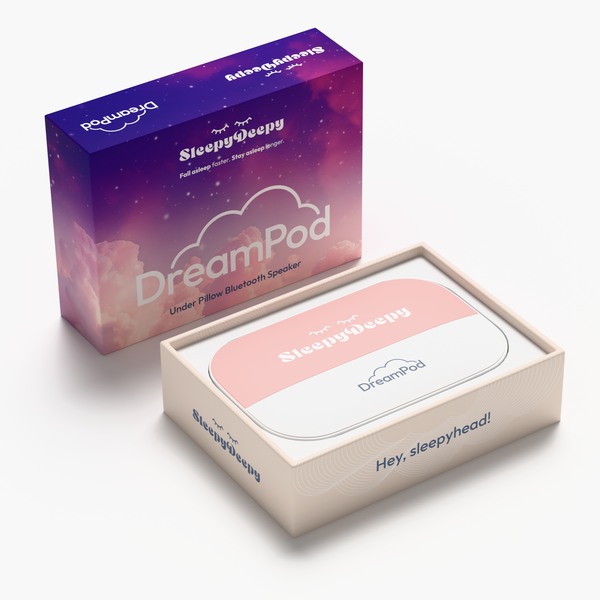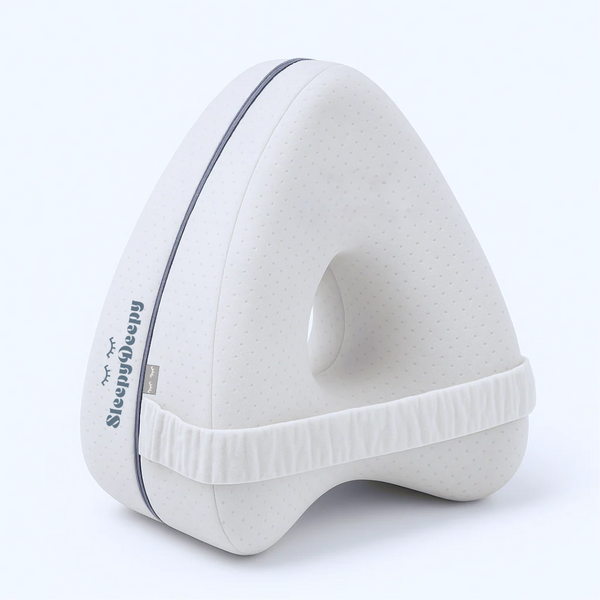Sleep is weird. Some people brag about needing only four hours, others feel broken without nine. So how much do you actually need?
We’re diving into the science, the myths, and the real-life factors that affect your sleep needs – and how to figure out the sweet spot that works for your body, not someone else’s.
The Myth of the Perfect Number
You’ve probably heard that golden number: eight hours a night. It’s simple, memorable, and totally... misleading.
Here’s the truth: your ideal sleep duration depends on a range of factors like age, activity level, stress, health, and even your genes. Some people genuinely feel refreshed after 6.5 hours. Others need a solid 9 to function like a human being and not a half-charged phone.
That said, the National Sleep Foundation offers a helpful guideline:
-
Teens (14–17): 8–10 hours
-
Young adults (18–25): 7–9 hours
-
Adults (26–64): 7–9 hours
-
Older adults (65+): 7–8 hours
So if you’re forcing yourself into a rigid 8-hour window, you might be ignoring what your body’s really asking for.
Quality vs Quantity
Here’s where things get interesting: not all sleep is created equal.
You could be in bed for 9 hours and still feel like a soggy croissant if your sleep quality is poor. Things like frequent waking, shallow sleep, too little deep or REM sleep – these can leave you feeling wrecked, no matter the total duration.
Think of it like this:
-
Sleep quantity is how long you sleep.
-
Sleep quality is how restorative that sleep actually is.
What matters most is how you feel the next day: are you clear-headed, emotionally stable, physically energised? That’s your real metric.
Factors That Impact How Much Sleep You Need
-
Physical activity – Training hard? You’ll need more sleep to recover properly. Your body does most of its muscle repair and growth during deep sleep.
-
Mental stress – High emotional load means your brain needs more downtime. REM sleep helps process emotions and form memories.
-
Age and hormones – Your sleep needs naturally shift over time. Teenagers and pregnant people often need more. Menopausal women often get less and lower-quality sleep, due to hormone disruption.
-
Diet and alcohol – Eating late, drinking alcohol, or skipping magnesium? You might fall asleep fast but stay in the lighter stages, missing out on deep sleep.
-
Chronotype – Night owl or early bird? Your body clock is partly genetic. Fighting it can reduce your sleep efficiency and total rest.
How to Find Your Ideal Sleep Window
We recommend experimenting for one week – yes, an actual sleep experiment. Here’s how:
-
Go to bed and wake up naturally (if possible) – no alarm, no schedule pressure.
-
Track how long you sleep and how you feel each morning.
-
Keep notes – Do you feel focused? Energised? Grumpy? Foggy?
-
Look for patterns – Over time, your body will show you what works best.
Bonus: use a sleep tracker, journal, or even a smart ring to get more detailed insights. (Just don’t obsess – data should help, not stress you out.)
What If I’m Not Getting Enough?
Sleep debt is real – and it’s cumulative. That means if you’ve had 5–6 hour nights all week, a lie-in on Saturday won’t fully fix it.
Signs you’re running low include:
-
Needing caffeine to function
-
Feeling emotionally off
-
Struggling to focus or remember things
-
Getting sick more often
-
Waking up exhausted even after 7+ hours in bed
If that’s you, it’s time to upgrade your routine.
Tools That Help
Getting enough sleep isn’t just about time in bed. It’s about giving your body the signals it needs to wind down and let go.
Our SleepyDeepy tools can help:
-
DreamDrops – A gentle blend of magnesium, L-theanine, and calming botanicals to relax your body and mind before bed. No melatonin. No grogginess.
-
DreamPlugs – Block out snoring, traffic and other unwanted sounds with these super soft hypoallergenic earplugs.
-
DreamTape – Mouth tape may sound odd, but helps promote nasal breathing for deeper, more restorative sleep.
These aren’t magic, but they’re reliable allies in your sleep system.
Final Word: Listen to Your Body, Not Instagram
Ignore the productivity gurus who say sleep is for the weak. Sleep is for the wise. It’s the ultimate life upgrade – free, powerful, and wildly underrated.
You don’t need to hit some arbitrary number. You just need to sleep enough to feel strong, focused, creative, and calm. And when that happens, life just works better.


























